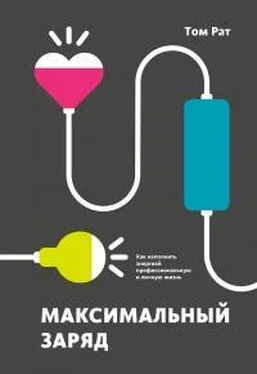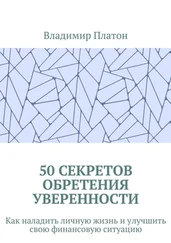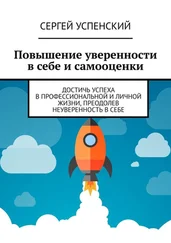Fredrickson, B. L., Grewen, K. M., Coffey, K. A., Algoe, S. B., Firestine, M., … Cole, S. W. (2013). A functional genomic perspective on human well-being. Proceedings of the National Academy of Sciences, 110, 1–6. doi:10.1073/pnas.1305419110.
Smith, E. E. (2013, August 1). Meaning is healthier than happiness. The Atlantic. Retrieved from www.theatlantic.com/health/archive/2013/08/meaning-is-healthier-than-happiness/278250/.
Глава 2
Redsand, A. A. (2006). Victor Frankl: A life worth living. New York: Clarion.
Batthyany, A. (n.d.). What is Logotherapy and Existential Analysis. Viktor Frankl Institut. Retrieved from www.viktorfrankl.org/e/logotherapy.html.
Khazan, O. (2014, April 21). Meaningful activities protect the brain from depression. The Atlantic. Retrieved from www.theatlantic.com/health/archive/2014/04/how-meaningful-activities-protect-the-teen-brain-from-depression/360988/.
Telzer, E. H., Fuligni, A. J., Lieberman, M. D., & Galván, A. (2013). Neural sensitivity to eudaimonic and hedonic rewards differentially predict adolescent depressive symptoms over time. Proceedings of the National Academy of Sciences, 111, 6600–6605. doi:10.1073/pnas.1323014111.
Wrzesniewski, A. & Schwartz, B. (2014, July 4). The secret of effective motivation. New York Times. Retrieved from www.nytimes.com/2014/07/06/opinion/sunday/the-secret-of-effective-motivation.html?_r=0.
Wrzesniewski, A., Schwartz, B., Cong, X., Kane, M., Omar, A., & Kolditz, T. (2014). Multiple types of motives don’t multiply the motivation of West Point cadets. Proceedings of the National Academy of Sciences, 111, 10990–10995. doi:10.1073/pnas.1405298111.
Amabile, T. & Kramer, S. (2011). The Progress Principle: Using small wins to ignite joy, engagement, and creativity at work. Boston: Harvard Business Review Press.
Pink, D. H. (2011). Drive: The surprising truth about what motivates us. New York: Riverhead Books.
Lazarus, B. (2014, June 30). The train dispatcher who defines what it means to be a gentleman. Telegraph. Retrieved from www.telegraph.co.uk/men/thinking-man/10875975/The-train-dispatcher-who-defines-what-it-means-to-be-a-gentleman.html.
Kashdan, T. B. (2014, July 14). 16 ways to motivate anyone: Moving beyond the notion of intrinsic versus extrinsic motivation. Psychology Today. Retrieved from www.psychologytoday.com/blog/curious/201407/16-ways-motivate-anyone.
University of Exeter. (2010, September 7). Designing your own work-space improves health, happiness and productivity. [Press release]. Retrie-ved from www.exeter.ac.uk/news/featurednews/title_98638_en.html.
Feloni, R. (2014, September 26). Why Google encourages having a messy desk. Retrieved from finance.yahoo.com/news/why-google-encourages-having-messy-153211039.html.
Глава 3
Work. (n.d.). In Thesaurus online. Retrieved from www.thesaurus.com/browse/work.
Rath, T., & Harter, J. (2010). The economics of wellbeing. Gallup Consulting Retrieved from www.gallup.com/services/177050/economics-wellbeing.aspx.
Weber, L. (n.d.). U.S. workers can’t get no (job) satisfaction. Wall Street Journal. Retrieved from blogs.wsj.com/atwork/2014/06/18/u-s-workerscant-get-no-job-satisfaction/.
Global workforce study, Engagement at risk: Driving strong performance in a volatile global environment. Tower Watson. Retrieved from www.towerswatson.com/assets/pdf/2012-Towers-Watson-Global-Workforce-Study.pdf.
Schwartz, T. & Porath, C. (2014, May 30). Why you hate work. New York Times. Retrieved from www.nytimes.com/2014/06/01/opinion/sunday/why-you-hate-work.html?_r=0.
Глава 4
Dewhurst, M., Guthridge, M., & Mohr, E. (2009, November). Motivating people: Getting beyond money. Retrieved from www.mckinsey.com/insights/organization/motivating_people_getting_beyond_money.
Association for Psychological Science. (2012, June 20). Respect matters more than money for happiness in life. Retrieved from www.psychologicalscience.org/index.php/news/releases/respect-from-friends-matters-more-than-money-for-happiness-in-life.html.
Anderson, C., Kraus, M. W., Galinsky, A. D., & Keltner, D. (2012). The local-ladder effect: Social status and subjective well-being. Psychological Science, 23, 764–771. doi:10.1177/0956797611434537.
Work. (n.d.). In Thesaurus online. Retrieved from www.thesaurus.com/browse/work.
Aknin, L., Norton, M., & Dunn, E. (2009). From wealth to well-being? Money matters, but less than people think. Journal of Positive Psychology, 4, 523–527. doi:10.1080/17439760903271421.
Dunn, E. W. & Norton, M. (2012, July 7). Don’t indulge. Be happy. New York Times. Retrieved from www.nytimes.com/2012/07/08/opinion/sunday/dont-indulge-be-happy.html?pagewanted=all&_r=0.
Boyce, C. J., Brown, G. D. A, & Moore, S. C. (2010). Money and happiness: Rank of income, not income, affects life satisfaction. Psychological Science, 21,471–475. doi:10.1177/0956797610362671.
University of Warwick. (2010, March 22). Study says money only makes you happy if it makes you richer than your neighbors. [Press release]. Retrieved from www2.warwick.ac.uk/newsandevents/pressreleases/study_says_money/.
Kahneman, D., Krueger, A. B., Schkade, D., Schwarz, N. & Stone, A. A. (2006). Would you be happier if you were richer? A focusing illusion. Science, 312, 1908–1910.
Vohs, K. D., Mead, N. L., & Goode, M. R. (2006). The psychological consequences of money. Science, 314(5802), 1154–1156. doi:10.1126/science.1132491
Curran, B. & Walsworth, S. (2014). Can you pay employees to innovate? Evidence from the Canadian private sector. Human Resource Management Journal, 24, 290–306. doi:10.1111/1748-8583.12036.
Глава 5
Henry, T. (2013). Die empty: Unleash your best work every day. New York: Penguin.
Lowman, R. L. (2004). Donald O. Clifton (1924–2003). American Psychologist, 59, 180.
Rath, T., & Harter, J. K. (2010). Wellbeing: The five essential elements. New York: Gallup Press.
Rath, T. (2007). StrengthsFinder 2.0. New York: Gallup.
Hunter, J. E. & Hunter, R. F. (1984). Validity and utility of alternative predictors of job performance. Psychological Bulletin, 96, 72–98.
Nye, C. D., Su, R., Rounds, J., & Fritz, D. (2012). Vocational interests and performance: A quantitative summary of over 60 years of research. Perspectives on Psychological Science, 7, 384–403. doi:10.1177/1745691612449021.
Why interest is crucial to your success. (2014, April 16). Duke Today. Retrieved from today.duke.edu/2014/04/interest.
O’Keefe, P. A. & Linnenbrink-Garcia, L. (2014). The role of interest in optimizing performance and self-regulation. Journal of Experimental Social Psychology, 53, 70–78. doi:10.1016/j.jesp.2014.02.004.
Rath, T. (n.d). Health is your business. Retrieved from www.tomrath.org/health-is-your-business/.
Глава 6
Corak, M. & Piriano. P. (2010). The intergenerational transmission of employers. IZA Discussion Paper No. 4819. Retrieved from ftp.iza.org/dp4819.pdf.
Domenico, D. M. & Jones, K. H. (2006). Career aspirations of women in the 20th century. Journal of Career and Technical Education, 22, 1–7.
Job Crafting Exercises. (n.d.). Retrieved from positiveorgs.bus.umich.edu/cpo-tools/job-crafting-exercise.
Berg, J. M., Dutton, J. E., & Wrzesniewski, A. (2008). Theory to practice briefing: What is job crafting and why does it matter? Center for Positive Organizational Scholarship, Ross School of Business. Retrieved from positiveorgs.bus.umich.edu/wp-content/uploads/What-is-Job-Crafting-and-Why-Does-it-Matter1.pdf.
Глава 7
Rath, T. & Conchie, B. (2009). Strengths based leadership: Great leaders, teams, and why people follow. New York: Gallup Press.
Alvarez, M. (2009, March 31). The average American adult spends 8 1/2 hours a day staring into screens. L’Atelier. Retrieved from www.atelier.net/en/trends/articles/average-american-adult-spends-8-12-hours-day-staring-screens.
Читать дальше
Конец ознакомительного отрывка
Купить книгу












